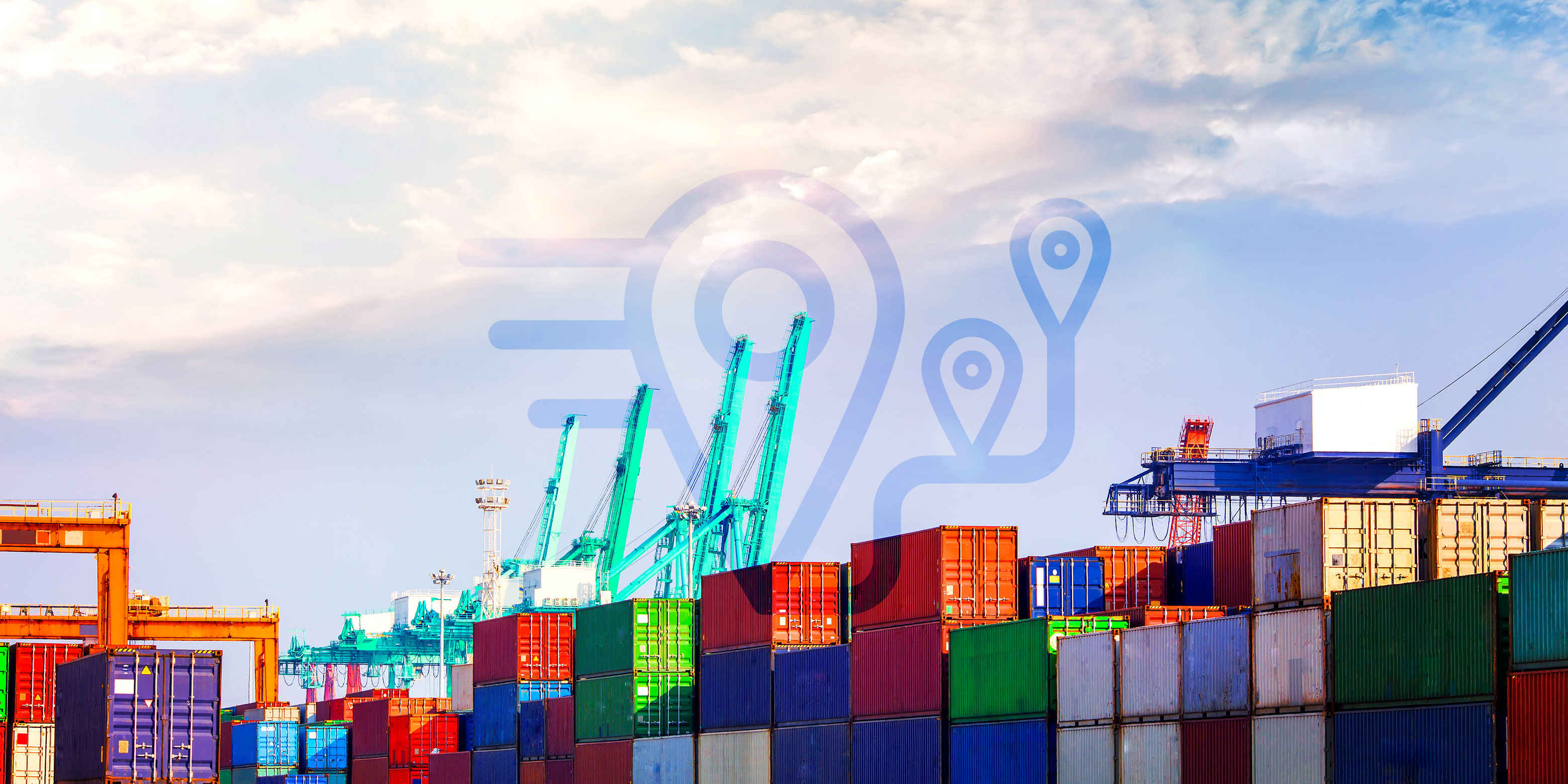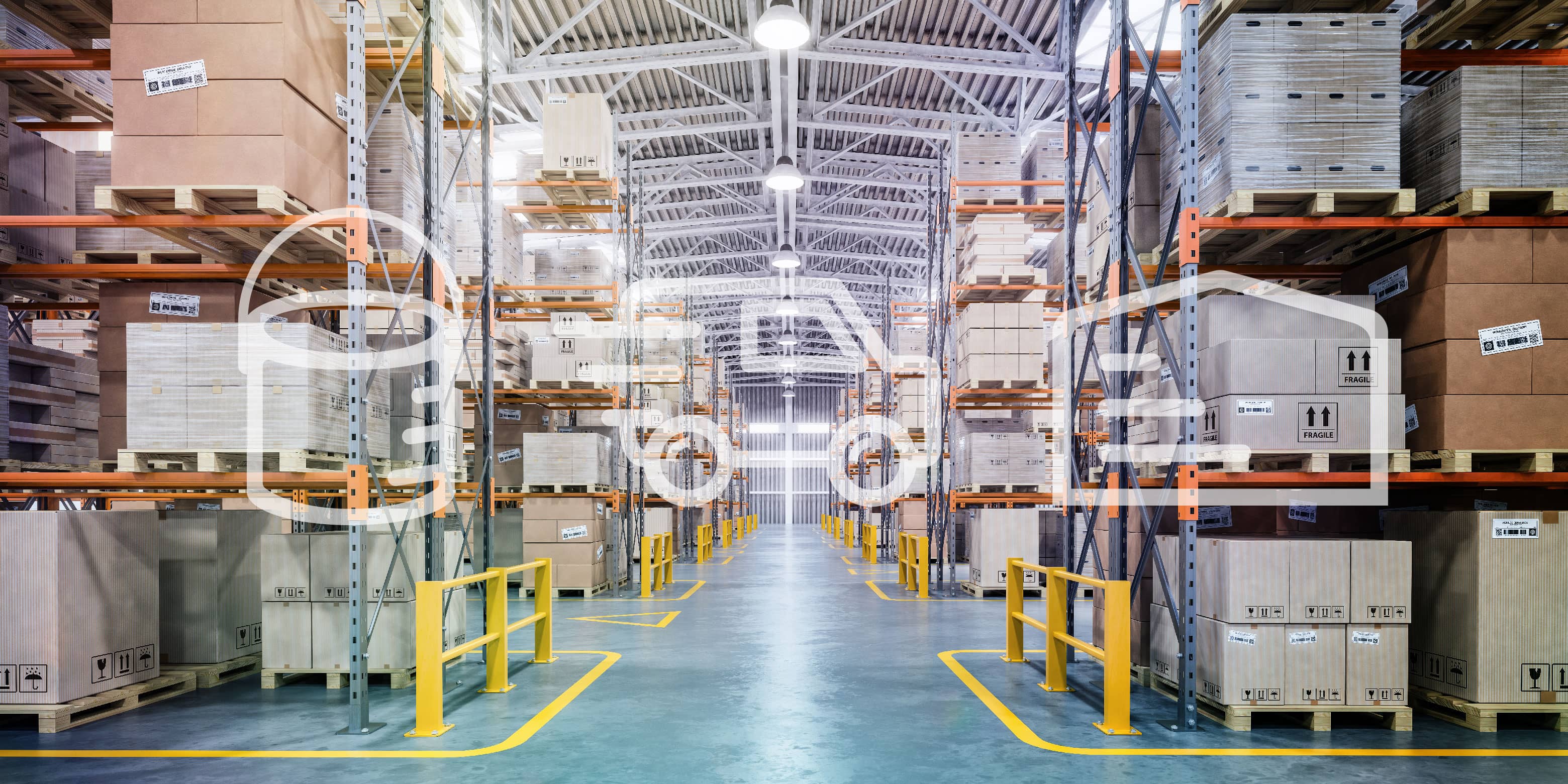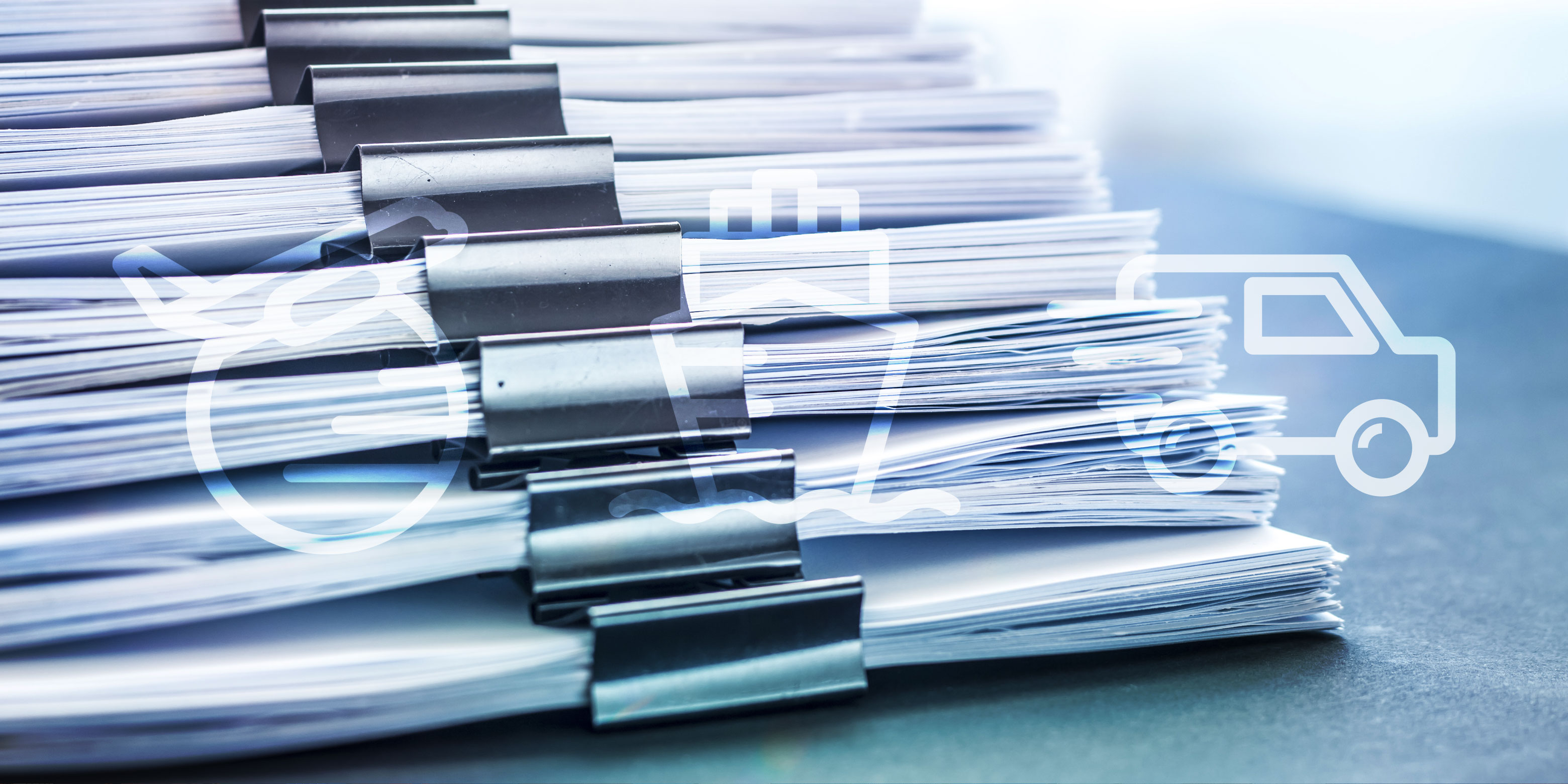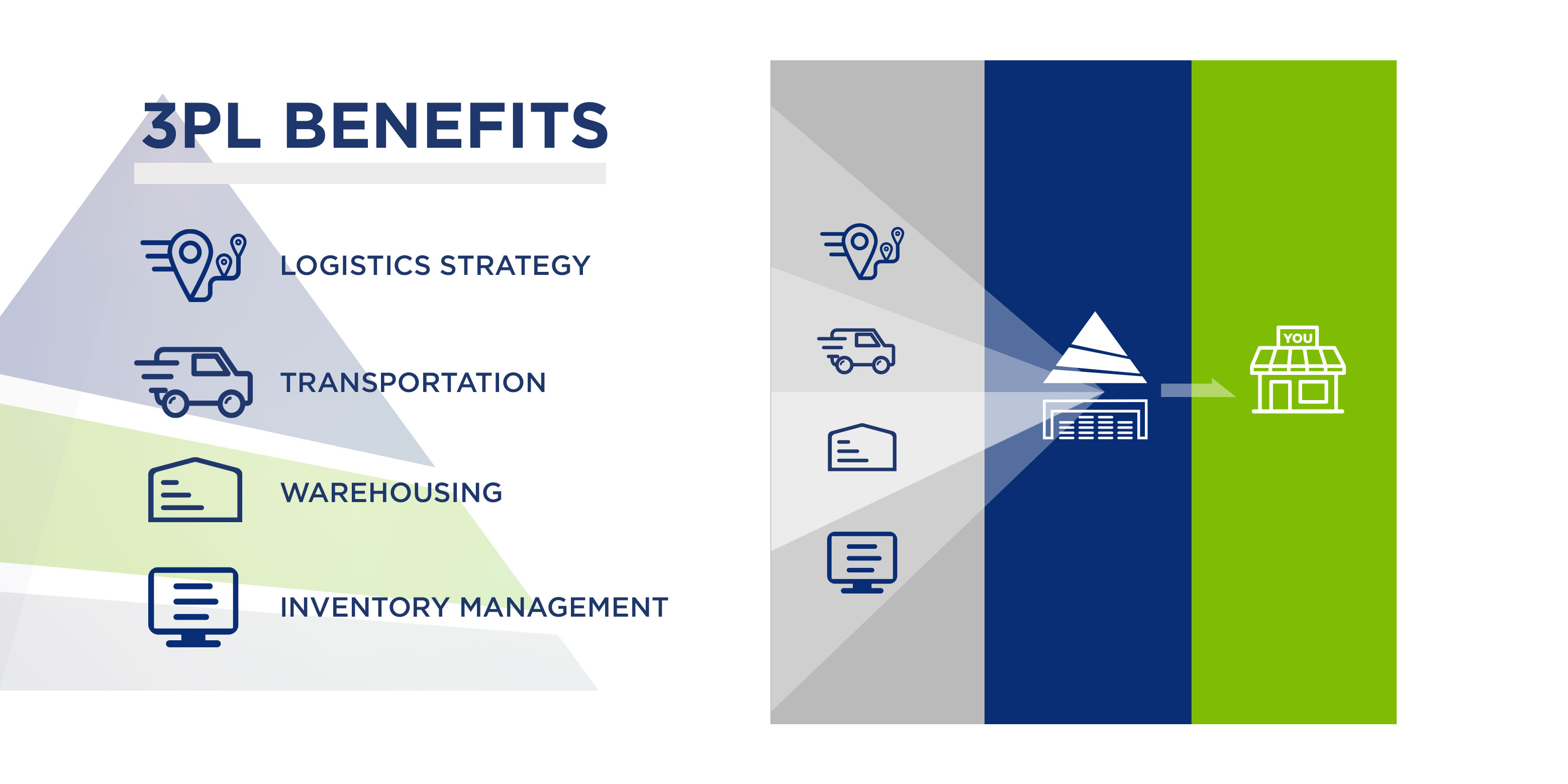KNOWLEDGE
What Is 3PL And Its Role In The Supply Chain?
The supply chain focuses on the production and distribution of products to destinations around the world. It may include distributing raw materials to a manufacturer, manufactured goods to a warehouse, or shipments to retailers and end customers. It encompasses every step in the transportation and handling of a shipment. While many companies oversee this role themselves, some choose to hire a Third-Party Logistics provider (3PL) to manage key aspects of their supply chain. A 3PL offers warehousing, fulfillment, and distribution services to companies looking to outsource their supply chain needs.
Logistics companies can be categorized by their unique role in the supply chain. For example, a manufacturer packing and arranging their own freight for transport to a customer would be considered first-party logistics (1PL). Second-party logistics (2PL) providers are asset-based carriers that are responsible for the method of transportation, such as ocean shipping lines, airlines, or trucking companies.
Beyond these two categories, logistics companies can be further classified into third-party logistics (3PL), fourth-party logistics (4PL), and more recently, fifth-party logistics (5PL). With over 20,406 logistics (3PL) companies in the United States in 2022, understanding the benefits of each and how they factor in the supply chain will allow you to select the best logistics provider for your business.

Differences Between 3PLs, 4PLs, and 5PLs
3PL Supply Chain
A 3PL in supply chain management is responsible for managing another company’s logistics operations and is mostly involved in the transportation and delivery of raw materials, works-in-progress (WIP), and finished goods between destinations. Their core function is to handle the inbound and outbound transportation of shipments and can provide additional services such as warehousing, fulfillment, freight forwarding, customs brokerage, and customs clearance. They are essentially contracted to act as an intermediary between 1PL’s and 2PL’s.
The types of services offered will depend on the 3PL’s capabilities. For example, in addition to our inventory and supply chain management services, Paramount Global also provides
- new mold financing
- custom package & container designs
- product labeling & decorating
- international freight forwarding
- global product sourcing
Often 3PLs will provide their own IT software to track and monitor shipments throughout the supply chain. These services may be bundled together with additional products or customized as a customer grows their business.
The key role of a 3PL is to provide end-to-end supply chain management services. They are responsible for fulfilling the orders of a shipper from one destination to another. They can also implement emergency logistics services in case unexpected issues arise with the transportation of goods, such as road closures and weather-related delays.
4PL Supply Chain
4PLs, or fourth-party logistics providers, are companies that oversee the end-to-end supply chain for their clients. Although they provide similar services to a 3PL, 4PL’s are non-asset based, meaning they do not own their own warehouses or delivery vehicles. Often called lead logistics, 4PLs arrange logistics services and manage communications for their clients, becoming a single source of contact for Supply Chain Management.
To be successful, it is important for 4PLs to have contracts with a network of 3PLs and freight companies across the globe and in different market sectors. An established network allows the 4PL to contract service on behalf of their client with a 3PL that is specific to a region or offers a specific service.
An example of a 4PL role is overseeing a shipment of frozen food products from one country to another. The 4PL contracts a 3PL who will manage the transportation from the manufacturer to the dock where the shipment will travel overseas. Then the 4PL company will have a 3PL carrier in the destination country take on the intermodal transportation to move the shipments from the ocean carrier to the rail carrier. The 4PL may also hire another 3PL company who focuses on climate-controlled and refrigerated trucking services to manage the shipments from the rail carrier to the warehouse or distributor.
A differentiating factor of a 4PL is that a client will typically not have input on which 3PLs will be hired by the 4PL. The 4PL solely makes these decisions on behalf of their client. It is uncommon for a customer to request the 4PL to work with a specific 3PL company that is not within their contracted network. 4PLs are selective with their 3PL contracts to ensure service quality and standards are achieved to meet client needs.
5PL Supply Chain
A 5PL is a newer form of logistics providers. Their role is aggregator based, not asset based. They do not handle any of the physical transportation of goods or even the individual supply chain. These companies focus on the needs of the 3PL and wider supply chain networks. While their exact roles can vary based on the company, a 5PL may handle contract negotiations between a 3PL and other companies to obtain bulk shipping rates from transportation suppliers such as ocean carrier companies or airlines.
A 5PL may also plan, manage, and implement strategies that become drivers to make supply chains more efficient for a client. They may evaluate products and technologies that a client could use for their supply chain, such as big data, robotics, and artificial intelligence (AI).

Differences Between 3PL and Freight Forwarders
Freight forwarder is a term that often comes up when talking about a 3PL supply chain. While some people use these two terms interchangeably, they are actually very different from each other. A freight forwarder does not manage inventory. They strictly act as a liaison between a shipping company and a customer.
Freight forwarders handle many administrative tasks, such as negotiating prices and establishing the best routes for shipments. They also help decide on the best transportation method as well as handling logistical issues that arise. A freight forwarder works as an intermediary. They have a narrower role in the supply chain when compared to a 3PL’s service offerings.

Benefits of a 3PL in Supply Chain Management
A 3PL has the logistical knowledge, resources, and capabilities to oversee the safe transportation of products from one location to a destination. The greatest advantage to working with a 3PL is that they have the established carrier network to move products quickly and identify cost-efficient options for the customer.
With a 3PL partner, a customer doesn’t need to have their own fleet, warehouse, or even fulfillment centers. A 3PL may offer these bundled services for the client, allowing the customer to focus on marketing their business and managing orders. Also, a 3PL often provides reverse logistical services. For example, if a customer obtains a product that is damaged, poor quality, or not what they expected, the 3PL is able to manage the logistics of sending the shipment back to the retailer or manufacturer.
A company may also find cost savings with a 3PL since there is a lower capital investment with 3PL services. A client does not need to invest in renting or purchasing warehouses or delivery trucks which have expensive upfront costs. A 3PL charges affordable rates for their range of services that doesn’t tie up an enormous sum of the company’s cash flow.
Companies of all sizes can work with 3PLs. An ecommerce shop who doesn’t outright own or store inventory can hire a 3PL to take on the work of storing inventory or moving shipments directly from the manufacturer to the customer. Small companies that don’t have their supply chains set up to weather economic uncertainties may rely on a 3PL to handle their logistical strategies until the time comes when they are able to handle the additional responsibilities.
Larger multinational companies that have their own fleets may also contract 3PLs to take on specific tasks. They may need a 3PL to facilitate specialized freight shipments that are beyond the capabilities of their personal carrier fleet. They may also need a 3PL in a specific region or country to manage their logistical transportation, since the 3PL company may be more versed in the governmental transportation standards and laws. This helps the client avoid shipping penalties, fines, and late shipments. A 3PL may also only oversee one specific task for the client, such as cross-docking, intermodal transport, or warehousing. The range of services 3PLs offer can adapt to specific business needs and serve businesses of all sizes.

Paramount Global: Integrated Supply Chain Solutions
With over $347.9 billion generated in 3PL revenue in the United States, it can be difficult for companies to identify which 3PL to use for their supply chains. Paramount Global offers 3PL warehousing and logistical services that help companies deliver their raw materials and finished products all over the world. With distribution centers located in the United States and the United Kingdom, our warehousing strategies improve your inventory management while reducing transportation and storage costs. Grow your business and deliver your products where they need to go with logistics services offered by Paramount Global. Contact us today to learn more.
Hayley is a marketing professional and copywriter with a background in crafting content for a diverse range of industries. She has been writing about packaging and supply chain logistics for Paramount Global since 2022. She specializes in explaining complex topics in a clear and engaging way and is an advocate for sustainability in packaging and supply chain management.
Read More
For over forty years, Paramount has been delivering perfectly integrated packaging and supply chain solutions.
